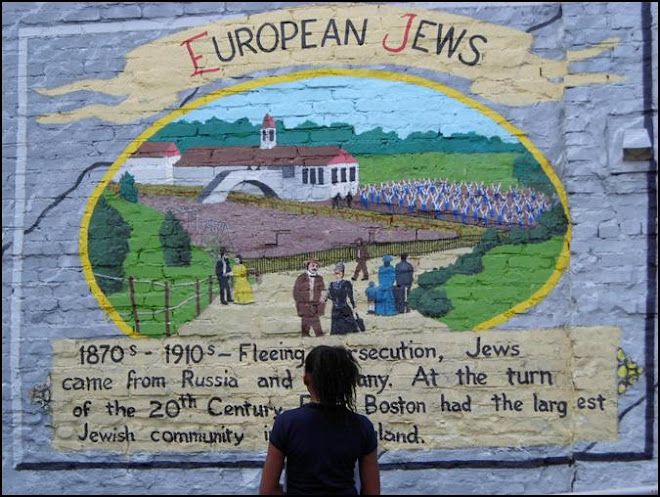 roposed for a parcel of land in downtown Boston. Kids in the auditorium had oohed and aahed when they saw this image. In follow-up chats in the different classrooms, I'd told the students that we are working with them to make sure that the exhibits inside the Boston Museum are as exciting as the exterior, and that creating the East Boston Historical Society with them is a first step toward realizing that goal. The museum's development team will learn from students what sort of exhibits and stories really capture their interest.
roposed for a parcel of land in downtown Boston. Kids in the auditorium had oohed and aahed when they saw this image. In follow-up chats in the different classrooms, I'd told the students that we are working with them to make sure that the exhibits inside the Boston Museum are as exciting as the exterior, and that creating the East Boston Historical Society with them is a first step toward realizing that goal. The museum's development team will learn from students what sort of exhibits and stories really capture their interest."You know what you should do?" K. offers, as we walk. "You should put, like, video games in the museum and pay people to come play them."
I acknowledge the appeal of his idea - "You are right, that would REALLY get people to come" - but explain that we will need to get people to do the opposite, to "pay to play" in the museum. Still, I say, the idea of using video games makes sense. People love to play video games.
"Do you think we should create a video game about some part of East Boston history?" I ask him? K. considers this.
"OK but I don't know how."
Neither do I. So I contact a friend at the Harvard School of Education who knows more about digital media than I do, and she offers some good suggestions on how to proceed. K. will be pleased (I hope) and I am happy because this casual conversation may represent the beginning of kids taking ownership of the EBHS, deciding for themselves what a 21st century historical society should be like.
Which is, after all, the whole point of what we're doing...


No comments:
Post a Comment